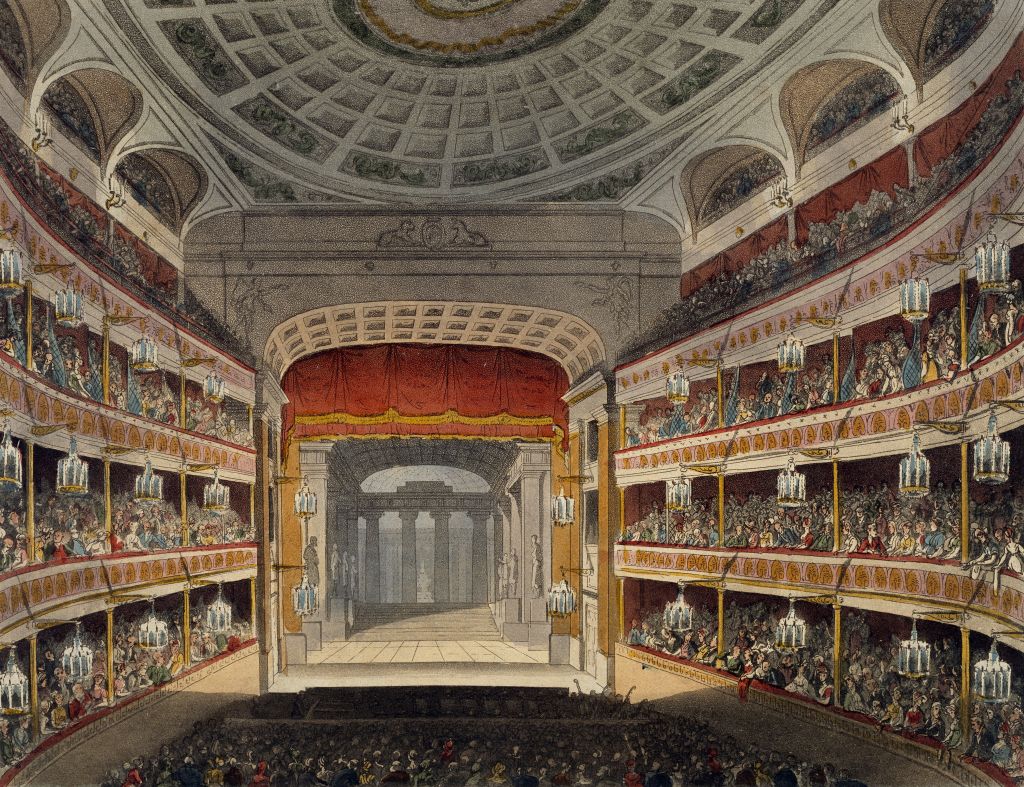
Get the latest financial news, insights and expert analysis from our award-winning MoneyWeek team, to help you understand what really matters when it comes to your finances.
You are now subscribed
Your newsletter sign-up was successful
Want to add more newsletters?

Twice daily
MoneyWeek
Get the latest financial news, insights and expert analysis from our award-winning MoneyWeek team, to help you understand what really matters when it comes to your finances.

Four times a week
Look After My Bills
Sign up to our free money-saving newsletter, filled with the latest news and expert advice to help you find the best tips and deals for managing your bills. Start saving today!
In the early 18th century, just two theatre companies were allowed to perform serious drama in London – at Lincoln's Inn and Drury Lane both of which were in receipt of Letters of Patent from Charles II.
After putting on a long-running and successful production of The Beggar's Opera, John Rich, actor and manager at Lincoln's Inn, found himself with enough money to build a whole new, bigger theatre. He took a 61-year lease on a site in Covent Garden, not far from his rival on Drury Lane, and commissioned Edward Shepherd to design and build it, at a cost of £5,600.
The building would be financed by an 18th century form of crowdfunding. Fifty shares of £300 each would be issued; each shareholder would receive free entry to performances at the theatre, and would be assigned a 1/50 share of the freehold. The building would then be leased back to Rich, who would pay each subscriber a rent of two shillings for each night there were performances.
MoneyWeek
Subscribe to MoneyWeek today and get your first six magazine issues absolutely FREE

Sign up to Money Morning
Don't miss the latest investment and personal finances news, market analysis, plus money-saving tips with our free twice-daily newsletter
Don't miss the latest investment and personal finances news, market analysis, plus money-saving tips with our free twice-daily newsletter
On average, there were 170 performances a year, meaning subscribers would get an income of £17 a year – an annual return of almost 5.7%. All the shares were sold, and proved so popular that a secondary market in them sprang up. One changed hands in 1774 for £345.
Depending on how ardent a theatregoer you were, the free entry was quite a perk, too. The cheapest seats in the gallery cost a shilling; it cost two and six to sit in the pit, and five shillings to sit in one of the 55 boxes.
The theatre opened on this day in 1732 with a performance of The Way of the World by William Congreve. Takings came to £115. It initially concentrated on staging plays, but ballet and opera featured too – indeed, George Handel wrote many of his operas specifically for the theatre.
The building burned down in 1808, and a new one was built. When that opened in 1809, the admission price was raised from five shillings to seven. The theatre-going public were outraged, and rioted. The second theatre burned down in 1856, and the third and current theatre opened in 1858.
The Theatres Act of 1843 deregulated the market for theatres, and new playhouses soon sprung up in competition. In 1847, it was decided to dedicate the theatre solely to opera. It was renamed the Royal Opera House in 1892.
Get the latest financial news, insights and expert analysis from our award-winning MoneyWeek team, to help you understand what really matters when it comes to your finances.

-
 Should you buy an active ETF?
Should you buy an active ETF?ETFs are often mischaracterised as passive products, but they can be a convenient way to add active management to your portfolio
-
 Power up your pension before 5 April – easy ways to save before the tax year end
Power up your pension before 5 April – easy ways to save before the tax year endWith the end of the tax year looming, pension savers currently have a window to review and maximise what’s going into their retirement funds – we look at how
